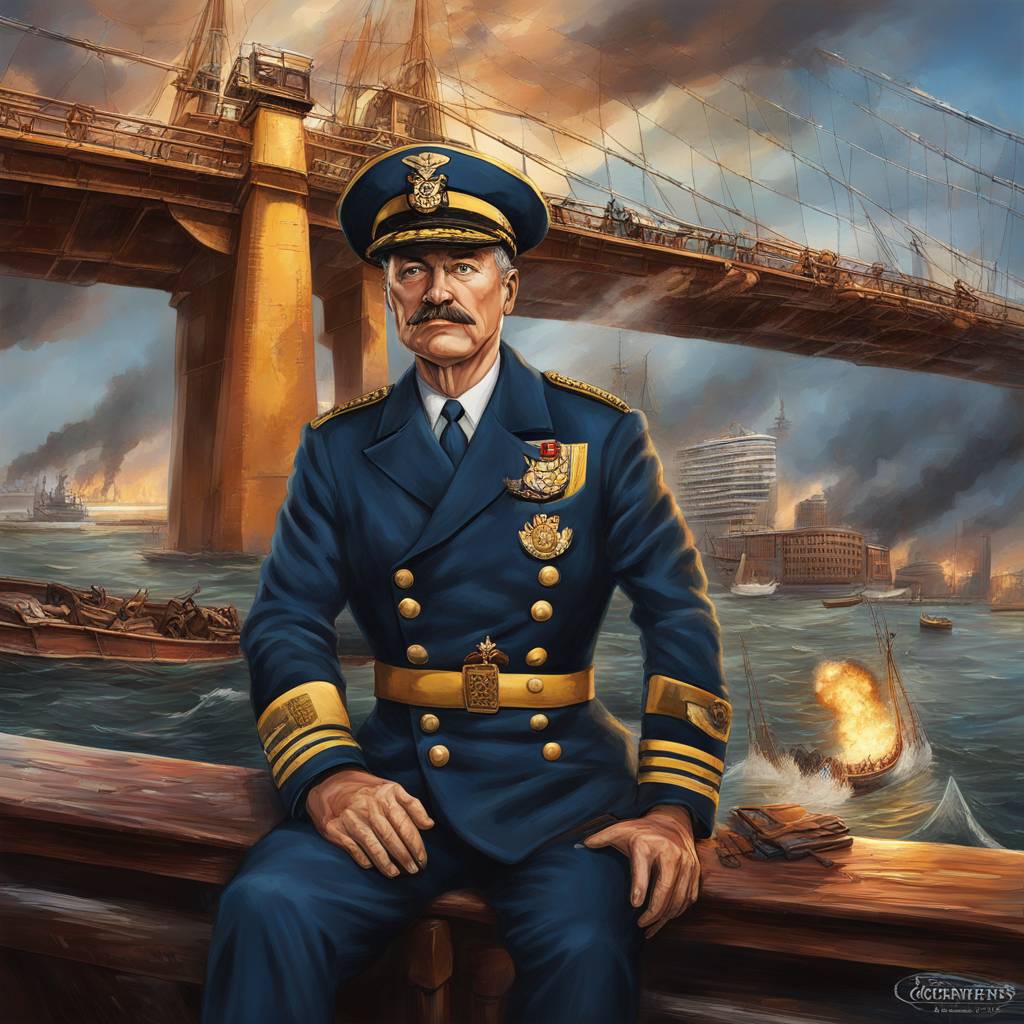The destruction of the bridge following the crash of a container ship named Dali into a pillar of Batimore’s Francis Scott Key Bridge on March 26th sparked numerous conspiracy theories, with some social media users pointing the blame at Ukraine. One theory that gained traction claimed that the captain of the ship was of Ukrainian nationality, with posts alleging that Ukrainians were taking credit for the incident as revenge for Europe not supporting them in the past. However, while there was indeed a Ukrainian man who had been the captain of the Dali ship several years ago, the current crew of 22 members was composed of Indian citizens. Additionally, once a foreign ship enters the Port of Baltimore, it is an employee of the State of Maryland who takes control of steering the ship to dock, making the nationality of the captain irrelevant in this situation.
Amidst the flurry of conspiracy theories circulating on social media, the Synergy Marine Group, the owner of the Dali ship, released a statement clarifying the nationality of the crew members aboard the ship at the time of the crash. Despite claims that the captain was Ukrainian, the actual crew consisted of Indian citizens. The Maryland Pilot Association also emphasized that once a foreign ship enters Maryland ports, a local ship handling specialist, known as the Pilot, takes over navigation of the vessel to ensure safe docking. This further highlights that the nationality of the captain operating the ship during the accident was not a factor in the cause of the crash.
One of the conspiracy theories that gained significant attention online suggested that Ukraine may have been involved in the bridge crash, with social media users attributing the incident to a supposed vindictive act by Ukrainians due to lack of support from Europe. However, investigations by officials early on determined that there was no indication that the crash was a deliberate act. Despite the claims made on social media, the focus of the investigation should be on determining the actual cause of the crash rather than spreading unfounded conspiracy theories blaming Ukraine for the tragic incident.
The false claims and misinformation spread on social media regarding the nationality of the captain of the Dali ship and the involvement of Ukraine in the bridge crash underscore the dangers of relying on unverified sources for information. The viral nature of these conspiracy theories highlights the need for critical thinking and verifying facts before sharing information online. It is essential to rely on credible sources and official statements when seeking information about such incidents to avoid perpetuating false narratives that can harm individuals or countries unjustly.
The prevalence of conspiracy theories surrounding the bridge crash incident serves as a reminder of the power and influence of social media in shaping public perception. In the age of instant sharing and widespread dissemination of information online, it is crucial for users to exercise caution and discernment when encountering sensational claims that lack evidence or credibility. By promoting fact-checking and critical thinking, individuals can help combat the spread of misinformation and prevent the amplification of baseless conspiracy theories that can have real-world consequences.
In conclusion, the bridge crash incident involving the container ship Dali and the subsequent spread of conspiracy theories blaming Ukraine for the tragedy highlight the importance of verifying information before sharing it on social media. By relying on official sources and factual evidence, individuals can help prevent the harmful effects of misinformation and false narratives. The incident underscores the need for responsible online behavior and critical thinking to combat the spread of sensationalized claims that can lead to unwarranted accusations and division in society.













